
Search Engine Optimisation (SEO) is an essential component of any digital marketing strategy. It involves optimising websites, content, and other elements to improve their visibility and ranking on search engines traffic to a website and increase its visibility to potential customers.
Whilst there is a lot of chatter about ChatGPT, both good and bad, the team at Digilari are of the firm belief that technology and human expertise go hand in hand to create successful marketing campaigns.
As AI (Artificial Intelligence) takes the centre stage in the digital arena, let’s delve into how ChatGPT can streamline your SEO process.
Table of Contents
- Mistakes To Avoid When Using ChatGPT For Content Creation
Content Creation
Generating fresh and engaging ideas for content can be a challenge, especially for those who are in the content creation process on a regular basis. Creating high-quality content can be time-consuming and managing the time required to research, write, edit and publish can be a challenge.
With the help of ChatGPT, you can generate high-quality content for websites, blogs, and other online platforms. This can help businesses create compelling, SEO-friendly content that engages their audience and improves their visibility on search engines.
I asked ChatGPT, “What are SEO and its importance?” Here’s the response.
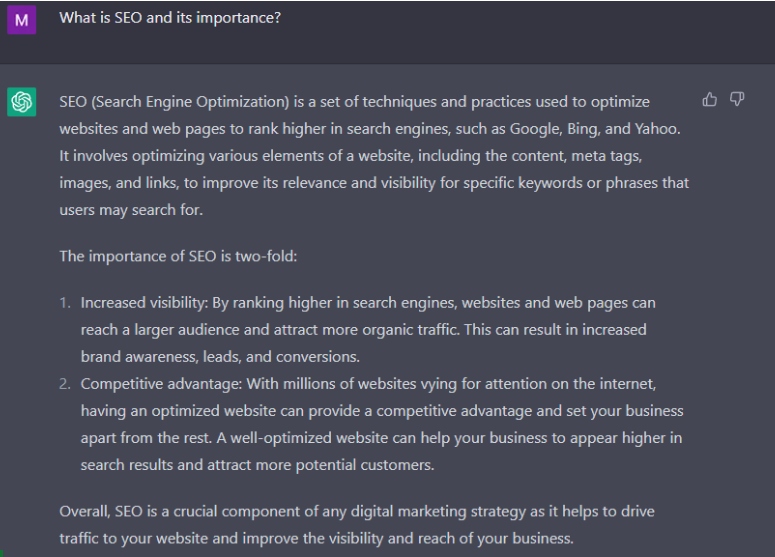
Keyword Research
One major challenge in keyword research is finding keywords that are both relevant to a website’s content and appealing to its target audience. This requires a deep understanding of the topics and themes that are most important to the website’s audience and the ability to translate that understanding into keyword selections that accurately reflect their interests and needs.
ChatGPT can help you identify the most relevant keywords for your business by analysing your target audience, competitors, and market trends. This information can be used to create effective SEO strategies that will improve your website’s ranking and visibility.
Here’s an example:
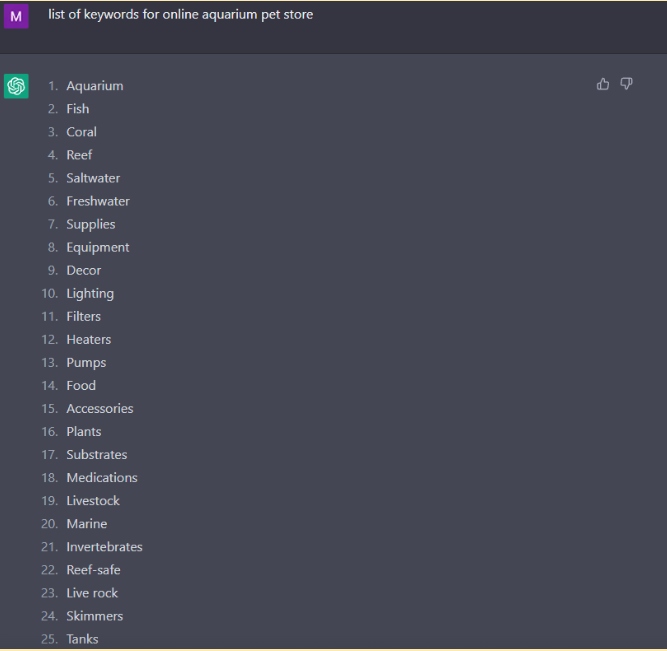
Now, let’s try to be more specific with our request.
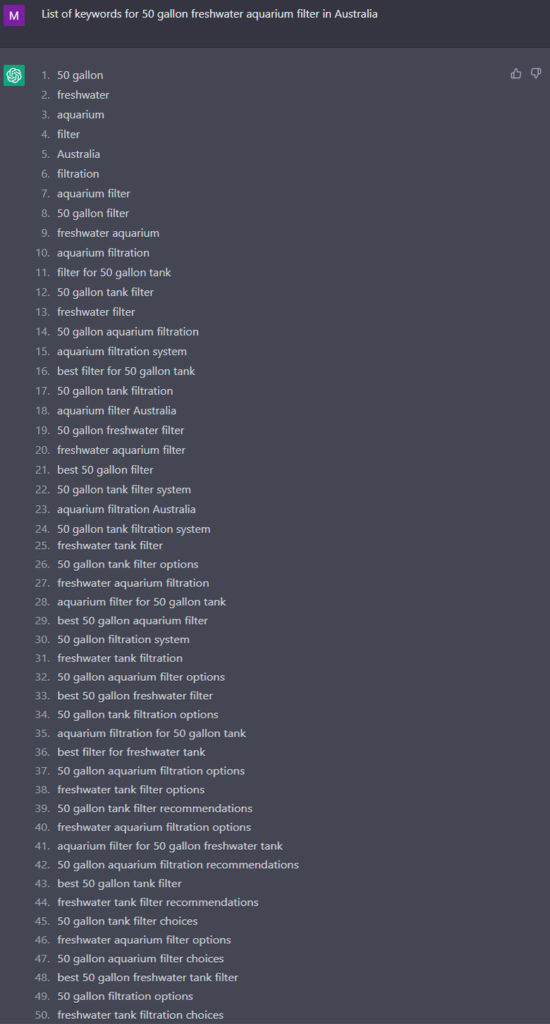
ChatGPT can quickly generate a large number of keywords, saving you time and effort compared to manual research. Additionally, using ChatGPT for keyword research can be more cost effective compared to using research tools.
However, it is important to note that when utilising ChatGPT for keyword research, specificity in your queries will lead to more accurate and relevant results.
Generate Page Title
Page titles are one of the most important elements of a website. They are the first thing that a search engine sees when it crawls a page, and they play a crucial role in determining the relevance and ranking of a website in search engine results pages (SERPs). A well-written and optimised title can help a website rank higher, attract more traffic, and increase its visibility to potential customers.
However, creating page titles that are both effective and engaging can be a challenging task. It requires a deep understanding of keywords, the target audience, and the overall tone and style of the content. Here’s where ChatGPT comes in.
All you need to do is ask ChatGPT to create a page title and input some keywords.
Here’s an example:
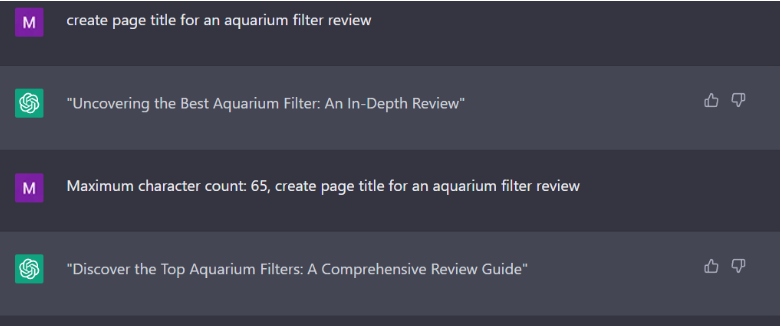
Using ChatGPT to generate page titles saves time and effort. With its advanced algorithms, it can generate titles in seconds that would otherwise take minutes or even hours to come up manually.
Image Optimisation
Creating alt text that accurately describes the content of an image while being relevant to the context of the page can be difficult. Balancing the need to provide enough detail in the alt text to accurately describe the image with the constraint of keeping it concise can be challenging.
If you’re having a hard time creating alt-texts, ChatGPT can be used to generate optimised alt tags and file names for images on your website. Alt tags help search engines understand the content of an image, while optimised file names can improve the relevancy of your images for specific keywords.
Here’s the image I used for ChatGPT to generate an alt-text:
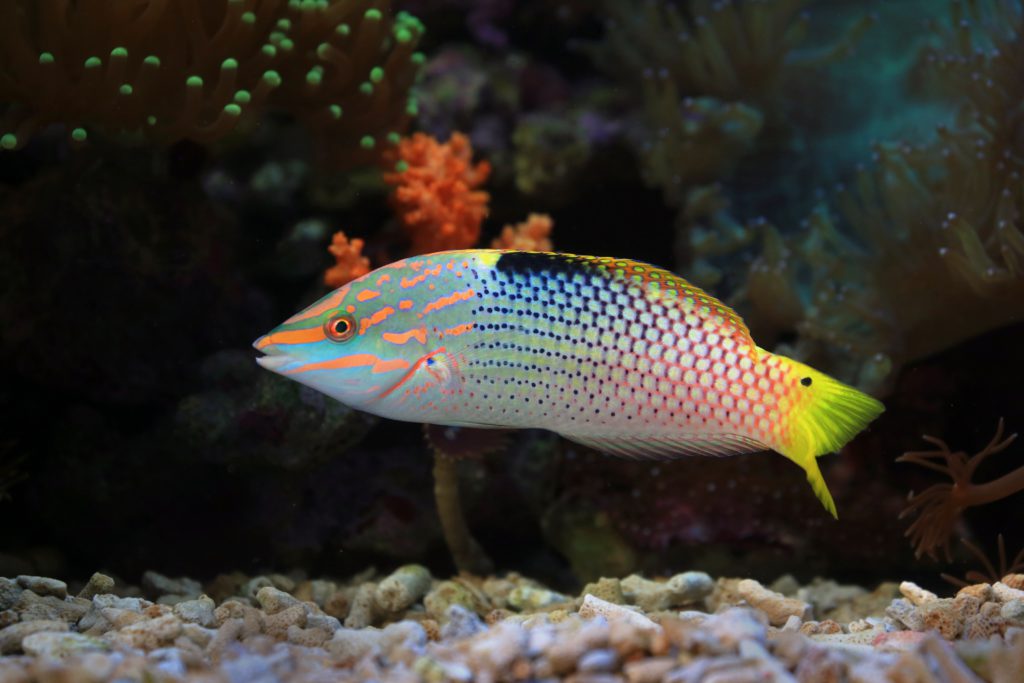
And here’s how I asked ChatGPT to generate an image alt-text:

As of now, you can not paste an image directly into ChatGPT, instead of adding the image to ChatGPT, you’ll need to provide or paste the URL of the image. I just hope that ChatGPT can have that feature where you can paste images in the input field in the upcoming updates.
Conclusion
ChatGPT is a truly remarkable tool that generates excitement with its endless potential, especially for SEO purposes. Just based on the limited features discussed, it has the potential to save you countless hours annually.
However, it is not without flaws and there are things to keep in mind when using ChatGPT. As it stands, it only accesses data up until 2021, making it unable to provide up-to-date information on current events.
Although it is likely that future versions of the chatbot will address this issue, there is no telling how long it will take for the AI to learn about and connect new events to other topics.



